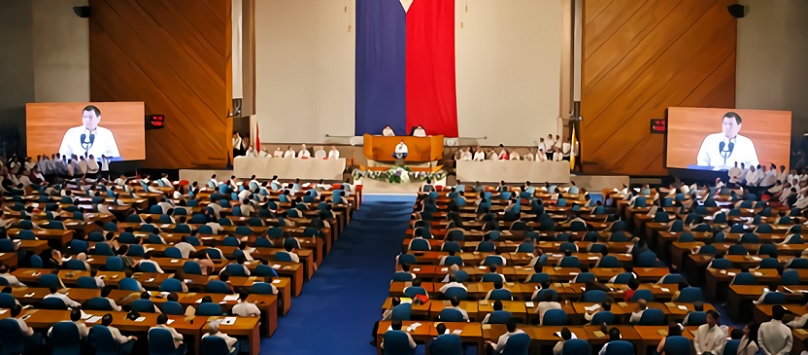Listening to President Duterte say that he is not interested in staying beyond June 30, 2022 reminds us of his denials about running for president in 2016. He didn’t even file his certificate of candidacy before the deadline set by the Commission on Elections, remember? He had to go through all the drama of substitution.
The proponents behind the renewed efforts for Charter Change in both the House of Representatives and the Senate are his minions. Would anyone believe that House Speaker Lord Allan Velasco and Senators Ronald de la Rosa and Francis Tolentino would do anything as serious as changing the Constitution without their Master’s imprimatur?
While inaugurating Stage 3 of the Metro Manila Skyway last week, the President went off topic, as he always does, and talked about the revived Charter Change move:“ Kaya nga hinihingi ko … Ang Congress akala nila — talagang mga — term extension. My God! Maski ibigay mo sa akin on a silver platter, maski ibigay mo sa akin libre another 10 years, sabihin ko sa iyo, p***** i** mo, iyo na lang ‘yan, tapos na ako.”
At least he admitted that the Charter Change initiative came from him. The value of his claimed disinterest in staying beyond June 30, 2022 is as good as his denial of his unexplained millions in his BPI bank account.
Some see the renewed attempt for Charter Change in the last 18 months of the Duterte administration as a diversion from the controversial unauthorized COVID-19 vaccination of members of the Presidential Security Group.
It’s like killing an issue by resurrecting one that has long been buried.
This time Duterte might get it his way given his clout on both the legislature and judiciary.
Charter Change at this late stage of his term is a long shot for Duterte and there’s an element of desperation in its revival.
Does it have something to do with “Bong Go for President” fantasy not catching on despite extensive media campaign, including blatant use of government resources and institutions?
Duterte ruled out the probability of his daughter, Davao City Mayor Sarah Duterte-Carpio, running for president in 2022. In that same Jan. 15 speech, he said: “And my daughter inuudyok naman nila, sabi ko, ‘my daughter is not running’. I have told Inday not to run kasi naaawa ako sa dadaanan niya na dinaanan ko. Hindi ito pambabae. Alam mo, the emotional setup of a woman and a man is totally different.”
Duterte is wrong about the fitness of women to be president. There are many examples of women presidents all over the world, including the Philippines that produced two — Cory Aquino and Gloria Macapagal-Arroyo.
Duterte-Carpio, who leads in Pulse Asia’s survey of contenders in the 2022 presidential elections, has issued a statement declaring her lack of interest in the presidency. This adds fuel to the reason behind the renewed push for Charter Change.
It is important for Duterte that his successor will be his ally who would protect him because by then he would no longer be immune from suits. There’s the unexplained wealth case pending before the Ombudsman. Many more cases related to the drug war and red-tagging killings are expected to be filed against him and officials involved in the operation after his term ends. And there’s the “crime against humanity” that is still being examined by the International Criminal Court in The Hague.
A non-ally successor may allow the ICC to come to the Philippines to investigate and pave the way for his and his fellow respondents like Sen. “Bato” de la Rosa and all uniformed personnel involved in the drug war and red-tagging killings to be arrested if they do not cooperate. With his over 90 percent approval rating, Duterte is the best bet to protect himself and his accomplices.
Simply put, the revival of Charter Change is an act of desperation.
This column is also in Malaya Business Insight and VERA Files.




